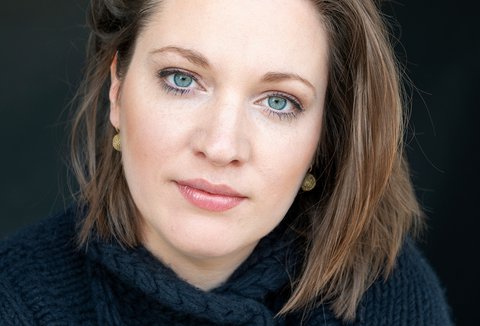The fact that Elina Albach not only began playing the harpsichord at the age of five, but that she is also the offspring of a very music-loving family with a background in Early music and church music and has been familiar with their repertoire from an early age, has had far-reaching consequences. Perhaps something has to be so deeply ingrained, so familiar and connected, that it can be thought of in a completely new and risky way: Not only is Albach in demand internationally as a harpsichordist today and has received numerous awards, but the fluid ensemble CONTINUUM, which she devised, is also regarded as the nucleus of an approach to Early music that has never been heard before.
Elina Albach, born in 1990, studied at the Schola Cantorum Basiliensis with Prof Jörg-Andreas Bötticher, has already conducted the Vokalconsort Berlin, the Karajan Academy of the Berlin Philharmonic and taught chamber music, basso continuo and harpsichord at the Carl Maria von Weber Academy of Music in Dresden and the Detmold Academy of Music. She has performed in various ensembles and solo at countless renowned festivals and legendary venues on four continents. Among her numerous scholarships, the #bebeethoven fellowship from PODIUM Esslingen and the German Federal Cultural Foundation, which enabled young artists to find new paths in performance practice, interpretation and composition in 2017–2021, stood out. During this time, CONTINUUM created projects that explored the topicality of Early music, undertook spectacular interweavings of Early and contemporary music while developing of a new repertoire for baroque instruments and created innovative concert designs.
She is currently working above all on making canonised works of the Baroque era intensively re-experiencable by condensing them in small ensembles. The performance of Johann Sebastian Bach’s St John Passion for tenor solo (Benedikt Kristjánsson), percussion (Philipp Lamprecht), organ and harpsichord, which was recorded on Good Friday 2020, at the height of the first coronavirus lockdown, in the empty St Thomas Church in Leipzig, was particularly captivating and attracted attention far beyond the boundaries of the classical music scene. Already in 2019, this production received the OPUS Klassik award for the most innovative concert.
